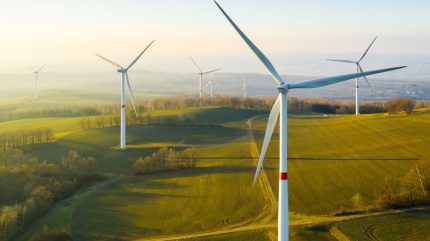
In an effort to accelerate renewable energy production and tackle high electricity costs, Poland’s parliament has passed a new piece of legislation aimed at simplifying the process for building onshore wind farms, reported Reuters.
The law aims to reduce the required distance between new installations and residential areas while maintaining stricter controls near protected natural sites.

Discover B2B Marketing That Performs
Combine business intelligence and editorial excellence to reach engaged professionals across 36 leading media platforms.
The legislative change is seen as a crucial step towards increasing Poland’s renewable energy output. It also includes provisions that cap household energy prices until year-end, and offer incentives for local communities and homeowners near proposed wind projects.
This move marks a significant shift from previous policies that had hindered onshore wind development over an eight-year period. The current administration made expanding renewable power generation a central commitment in its election campaign.
Climate Minister Paulina Hennig-Kloska said: “This is a step towards lower power prices for Poles and for the economy, an idea we all share. The more power we have from renewable sources, the lower electricity prices will be.”
However, before becoming law, this bill must gain approval from both the Senate and outgoing president Andrzej Duda.

US Tariffs are shifting - will you react or anticipate?
Don’t let policy changes catch you off guard. Stay proactive with real-time data and expert analysis.
By GlobalDataDuda, along with president-elect Karol Nawrocki, have expressed reservations about relaxing regulations surrounding wind farm permits.
Duda indicated his disapproval by highlighting how government officials attempted to pressure him into endorsing the bill by integrating an amendment that would freeze power prices at their current levels.
Poland has been witnessing a gradual decline in coal-dominated power generation with renewables steadily gaining ground.
In 2024, nearly one-third of Polish electricity is expected to come from green sources. With a current installed capacity of 11GW from wind power alone, this legislative update could further bolster Poland’s position in Europe’s clean energy landscape.





